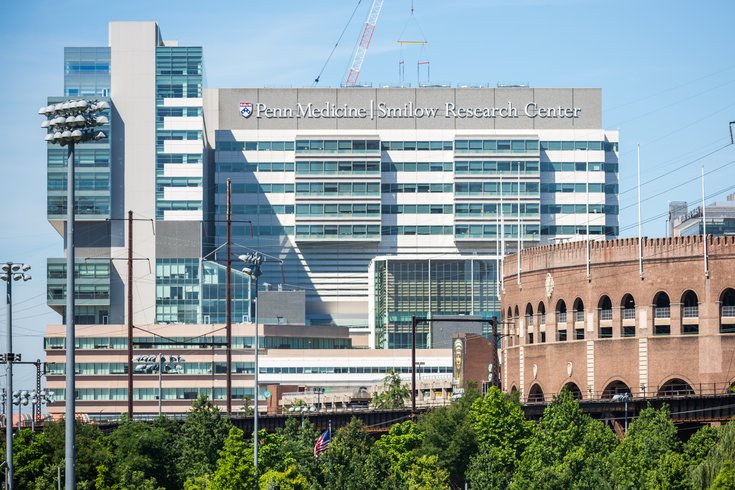
December 23, 2017
 Thom Carroll/PhillyVoice
Thom Carroll/PhillyVoice
The Smilow Center for Translational Research at the University of Pennsylvania.
Cancer patients may be choosing not to pick up their prescribed oral treatments because of high out-of-pocket costs, a University of Pennsylvania study found this week.
Researchers at Penn's Perelman School of Medicine tracked more than 38,000 people entered into a national prescription claims database and sought to find whether sticker shock causes some cancer patients to decide against picking up – and paying for – oral cancer drugs, the school said in a press release Thursday.
In the study, patients insured by Medicare and other types of insurance received a new prescription for one of 38 oral cancer medications from 2014 to 2015. But not all of them picked up their drugs when faced with high costs.
Researchers found that about 32 percent of patients who were charged anywhere from $100-$500 failed to fill their prescription. Among those whose out-of-pocket costs eclipsed $2,000, nearly 50 percent never picked up their medication.
In contrast, just 10 percent of patients who were required to pay less than $10 failed to pick up their medication, researchers said.
“Patients in our study were facing a new cancer diagnosis or a change in their disease that required a new treatment. Imagine leaving your doctor’s office with a plan, ready to start treatment, only to find you can’t afford it,” Professor Jalpa A. Doshi said in a statement. “It adds more stress at what is already a stressful and scary time.”
Oral chemotherapy, typically taken as a liquid or a pill at home, is widely considered more convenient for patients compared to intravenous chemotherapy, which is given in a hospital or a doctor's office. But the oral treatment tends to fall under health plans' pharmacy benefits instead of a patient's medical benefits, resulting in far higher out-of-pocket costs.
Researchers were sure to factor in insurance types and the ages and health status of patients listed in the database, but the findings were still clear-cut, they said.
The researchers found no evidence that patients who initially failed to pick up their medication began treatment with those medications in the next three months. They were considered to have "abandoned" their prescription, researchers said.
The study also explored whether patients who abandoned their prescription ultimately started on any other cancer medication in the same drug class over the following three months. Few did, they said.
“This shows the importance of discussing financial barriers up front, during conversations about treatment options, even with patients who don’t raise concerns,” said Doshi, the study's lead author. “Patients may not be aware of how expensive their prescriptions will be, and physicians may not realize that a patient has opted not to fill the prescription.”
One in eight patients studied faced more than $2,000 in out-of-pocket costs, but such financial obligations have become increasingly common since 2015, they said.
Pfizer, one of the world's largest pharmaceutical firms, helped fund the research.
In July 2016, Pennsylvania became the 42nd state to pass controversial legislation aimed at making oral cancer drugs more affordable for patients.